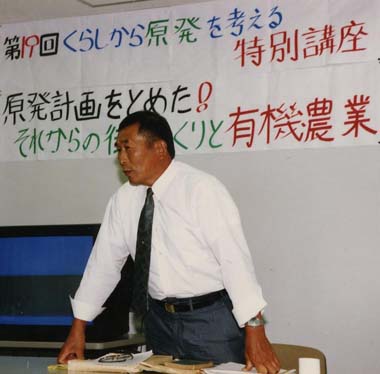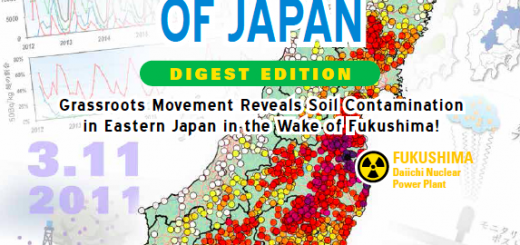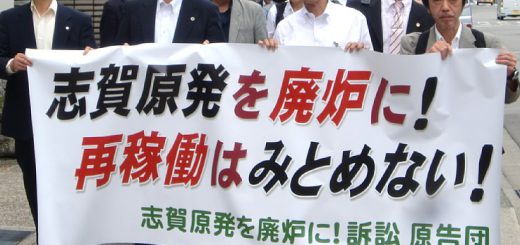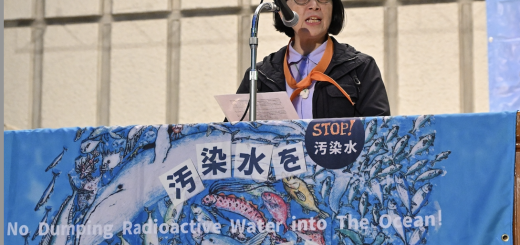Group Introduction Daichi Stop Nuclear Power Committee Nuke Info Tokyo No. 122
By Kyoko Noguchi*
 |
|
Farmer, Mikio Shimaoka, speaking at a meeting organized by Daichi Stop Nuclear Power Committee. He played a key role in stopping the Kubokawa nuclear power plant plan.
|
“Rather than shout a thousand times about the dangers of agricultural chemicals, it is better to start by growing, delivering and eating one organic radish.” Daichi-Wo-Mamoru-Kai (The Association to Preserve the Earth) began with this slogan in 1975.
Daichi focuses on the connection between food and the natural environment. Its philosophy is to make safe food widely available in society and to promote organic agriculture. It is comprised of 82,000 consumer household members (mainly in the region around Tokyo), 2,500 producer members throughout Japan, and its offices. Its head office is located in Tokyo’s Minato Ward.
Daichi takes on many issues, including genetic modification and school lunches. Recently the “One Million People Candle Night” and the “Food Mileage” campaigns have been hugely successful. The Candle Night campaign calls on people to turn off their lights from 8pm to 10pm on the night of the summer solstice and spend a quiet time by candlelight. Events are held around Japan, in cooperation with other groups. The Food Mileage Campaign aims to reduce as much as possible the distance that food is transported from producers to consumers and in so doing to reduce the CO2emitted. It also helps to protect primary industry.
Daichi issued a statement opposing nuclear energy in 1986, the year of the Chernobyl accident. After the accident, radioactivity was carried in the atmosphere to Japan and small quantities were detected in Daichi’s vegetables, tealeaves, milk, etc. There was discussion about whether or not we should eat vegetables in which radioactivity was detected, but no conclusion was reached. In producing safe vegetables, Daichi’s growers give great consideration to the natural environment. They are extremely careful not to use insecticides or herbicides, but when radioactivity falls from the sky, what are they to do? Since then, Daichi has opposed nuclear energy declaring, “Nuclear energy is incompatible with organic agriculture, which places importance on life.” Daichi also established an expert committee within the association. The committee’s name translates as “Daichi Stop Nuclear Power Committee”.
Daichi Stop Nuclear Power Committee’s main activities are: dissemination of information to members promoting a nuclear energy phase out; exchanges and solidarity actions with people in regions with nuclear facilities; participation in the “Stop Nuclear Power! Tokyo Network” (network of groups in the Tokyo region calling for a nuclear phase-out) and “Stop Reprocessing: Assembly of Citizens in the Region of the Capital” (network working to prevent full operation of the Rokkasho Reprocessing Plant). In addition, from the perspective of food safety, together with organizations including the Japanese Consumers’ Cooperative Union, Daichi established the “National Network to Oppose the Rokkasho Reprocessing Plant and Prevent Radioactive Contamination”. This network is running a national signature campaign and lobbying politicians. In future we hope to join with large numbers of people to create a society which is free of nuclear power and which places importance on livelihoods and life.
*Kyoko Noguchi is a Board Member representing Daichi consumers.



